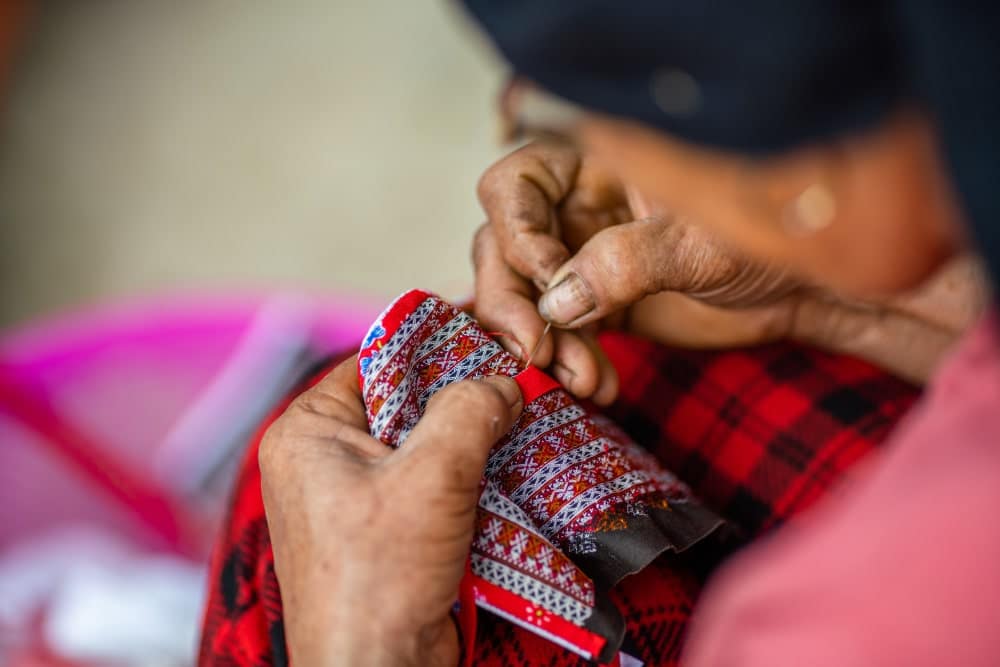
Factors That Fueling the Growth of Textile Industry in India
The textile industry in India has been a prominent player in the country’s economy for centuries. Over the years, it has witnessed significant growth and transformation, making it one of the key sectors contributing to India’s economic development.
At Vatsal Exports LLP, a leading player in the textile industry, we explore the factors that have fueled the remarkable growth of the textile sector in India.
Abundant Raw Materials:
India is blessed with abundant raw materials, such as cotton, silk, jute, wool, and synthetic fibers. The availability of diverse raw materials gives the country a competitive edge in producing a wide range of textiles.
Skilled Workforce:
The Indian textile industry benefits from a skilled workforce that has inherited age-old craftsmanship techniques. The expertise of artisans and weavers in traditional textile production contributes to the creation of high-quality and intricate fabrics.
Favorable Government Policies:
The Indian government has implemented several favorable policies and initiatives to promote the growth of the textile industry. Measures like the Technology Upgradation Fund Scheme (TUFS) and the National Textile Policy have provided financial incentives and support for modernization and capacity expansion.
Growing Domestic Market:
India’s large and diverse population creates a substantial domestic market for textiles. The growing middle-class population and increasing disposable incomes have driven the demand for various textile products, including apparel, home furnishings, and technical textiles.
Export Potential:
India’s textile industry is a major player in the global market. The country’s competitive pricing, diverse product range, and adherence to international quality standards have contributed to its success in textile exports.
Technological Advancements:
The adoption of advanced technology and machinery has enabled Indian textile manufacturers to improve productivity and efficiency. Automation and digitalization have streamlined various processes, enhancing the overall competitiveness of the industry.
Focus on Sustainable Practices:
In recent years, there has been a growing emphasis on sustainable and eco-friendly practices in the Indian textile industry. Many manufacturers, including Vatsal Exports LLP, have embraced sustainable sourcing, eco-friendly dyeing techniques, and responsible waste management, appealing to environmentally conscious consumers.
Favorable Geographical Location:
India’s strategic geographical location provides it with a strong advantage in accessing key markets globally. Proximity to major textile-consuming countries in Europe, the Middle East, and Africa facilitates trade and export opportunities.
Diverse Product Range:
The Indian textile industry offers a diverse range of products, including apparel, home textiles, technical textiles, and industrial fabrics. This diversity allows manufacturers to cater to various customer segments and markets.
Vibrant Textile Clusters:
India is home to various textile clusters specializing in specific types of textiles, such as Kanjivaram silk sarees, Banarasi brocades, and Chanderi fabrics. These clusters promote regional economic growth and showcase the rich cultural heritage of Indian textiles.
Conclusion
Vatsal Exports LLP takes pride in being part of India’s flourishing textile industry. Visit our website to explore our wide range of high-quality textile products and experience the excellence of Indian textiles.
In conclusion, several factors have contributed to the impressive growth of the textile industry in India. From abundant raw materials and skilled artisans to favorable policies and technological advancements, the industry’s progress has been significant.

